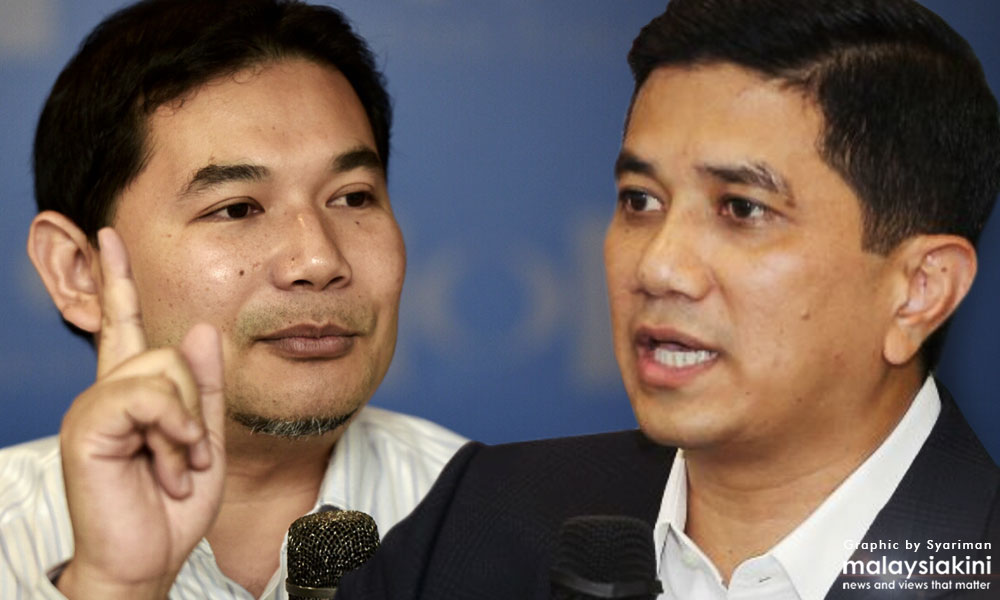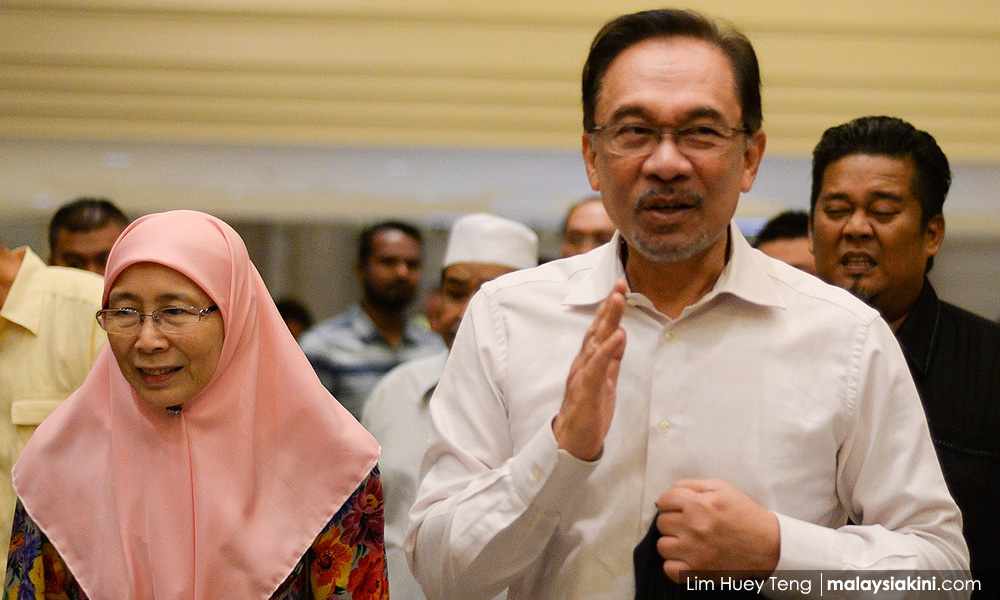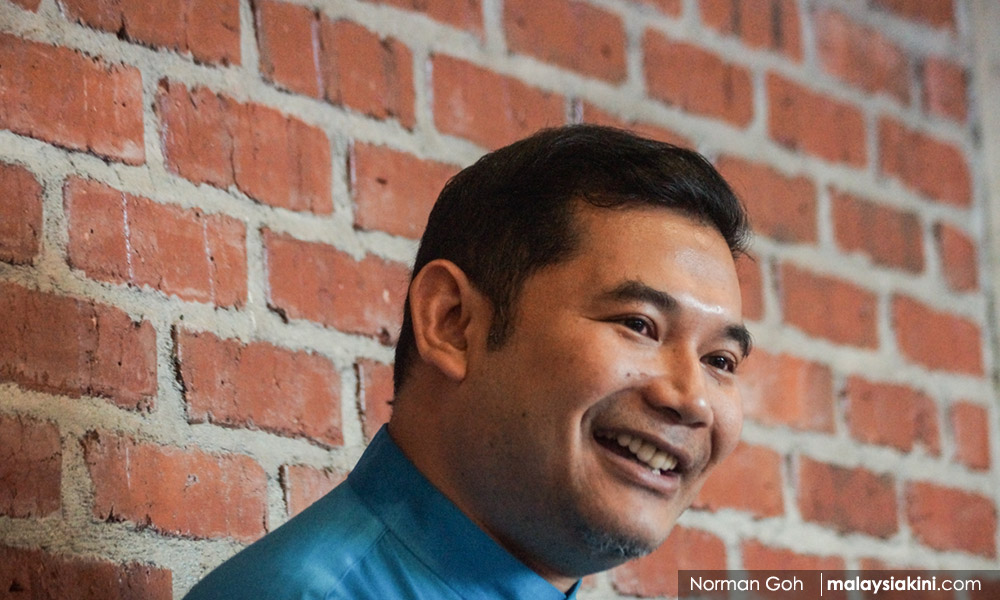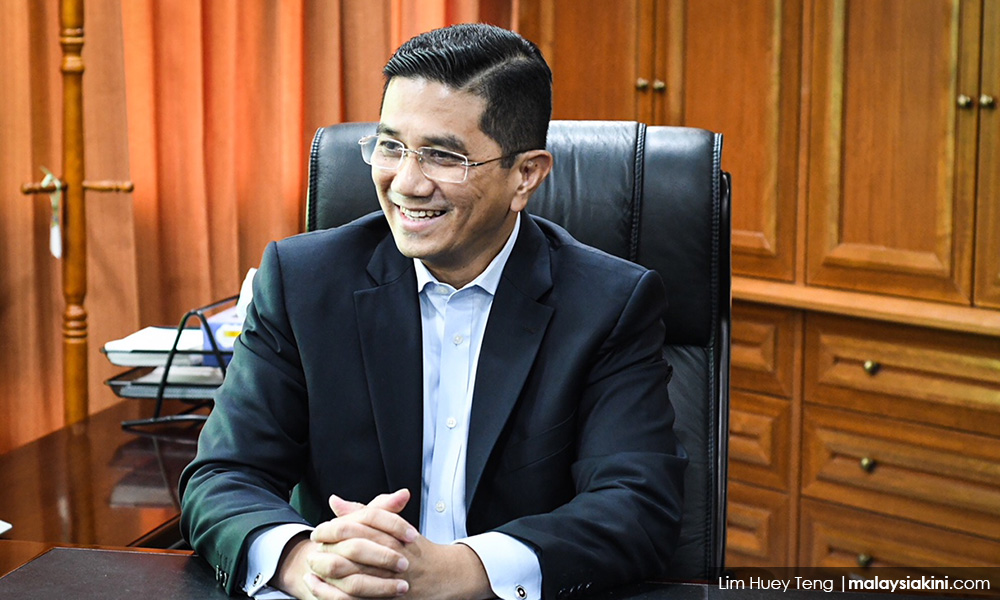
The starter pistol has been fired, and PKR is off to the races. This is the first time a component party of Pakatan Harapan is holding its elections since coming to power, so it will serve as a test in many ways.
As we look into some of the major dynamics of the race, a mostly pros versus cons approach will be taken.
PKR has a rather unique and interesting electoral system. The best thing about the system is the concept of one member, one vote.
In this sense, it is the political party that is by far the most democratic in Malaysia, compared to the other layered or tiered systems used by other parties.
However, there are a number of odd things as well. The party elections take place over nearly four months, which is an anomaly. This is most likely not a particularly good thing, as it makes the contest a long, drawn-out affair.
Recent news about imposing a nomination fee for candidates wishing to run was also a bit odd.
On the one hand, I suppose it shows that PKR is not receiving outside funding for its election process, which is arguably a good thing.
On the other, it creates a barrier of entry that can only be seen as undemocratic.

Outsiders may speculate that this is one of the reasons Anwar Ibrahim won the president’s post uncontested.
Here, as well, there are pros and cons. The good news is that Anwar is now the duly elected leader of the party, as opposed to holding the rather vague and non-democratic post of "de facto leader", whatever that meant.
While I’m sure some members were happy that there was no contest for the president’s post, in the long run, it may be a good thing for all posts to see a healthy democratic contest.
Rafizi the 'outsider' candidate?
The highlight of the party elections, of course, will be the contest for the deputy president's post, between Rafizi Ramli and Azmin Ali.
Most of the contests for other party posts seem to be proxy battles for these two men.
Both individuals have their strengths and weaknesses.
Rafizi (photo) is in many ways a darling of urban Malaysians, especially among non-Malays. His work with Invoke was far-reaching and highly impactful during the last general election - achieving quite a good brand name recognition.

While I was highly dubious about his electoral math going into the election, in the end, it appeared that his numbers and predictions were fairly correct.
Perhaps his biggest appeal to party members is how he has positioned himself as an "outsider" to the government.
By not having any posts in the government whatsoever, he appears to have positioned himself as the champion of all PKR members who feel they were left by the wayside in this new Malaysia.
I imagine this is quite a big number. The recent discontent in Selangor over the appointment of municipal councillors is but one example of this problem.
If this is Rafizi’s primary strategy, he may find quite a few enthusiastic supporters.
Rafizi’s biggest weaknesses may be his tendency to be a little too emotional sometimes. Seemingly quick to anger, he sometimes comes across as having a bit of street fighter attitude - having little or no chill, as the kids these days might say.
He often does not seem to respond well to criticism, and sometimes appears to have a very low threshold for agitation. Once he gets into that mode, he tends to be sharp-tongued, and not always the best example of a calm, collected statesman.
Azmin’s feudalism
In this regard, Azmin (photo) appears to have the upper hand, as he is almost all smoothness and charm.
You seldom see him get visibly agitated, and he is generally the picture of calm.
I suppose he has looked to create an image of himself that is similar to that of his former mentor Anwar - suave, charismatic and statesmanly.

He has probably also worked to develop a reputation as an efficient and effective, if somewhat quiet and low profile, administrator.
Of course, this type of image does not appeal to everyone. There are probably some who find him aloof and not the most accessible of individuals.
More importantly, Azmin’s style of leadership may be said by some to be somewhat feudal in nature, where loyalty to the boss is very important, and where there is a clear expectation that the feudal lord will "feed" his supporters.
Sometimes, a "quiet" leader is one who prefers being out of the limelight - and not always for good reasons.
In this vein, a number of rumours concerning financial scandals have followed Azmin around, though to be fair, he has never been convicted of anything, even when BN was in power.
Healthy contest
I suppose there isn’t too much to say about the other contests, as again, most of them seem to be proxy battles between Team Rafizi and Team Azmin.
The Youth chief battle is a little odd, with the last minute addition of Najwan Halimi. It is unclear why there are two Azmin aligned contenders in this particular race.
Then, of course, there are those running without stating a clear allegiance to one faction or the other.
This is probably a good thing, indicating that factionalism hasn't completely taken over the party. It would be interesting if such individuals are the ones who perform the best.
In any case, hopefully, the PKR elections will see a healthy contest, with the focus being on different ideas, and what each leader can bring to the table in this new Malaysia.
NATHANIEL TAN wonders if Rafizi Ramli will ever unblock him on Twitter. -Mkini



No comments:
Post a Comment
Note: Only a member of this blog may post a comment.